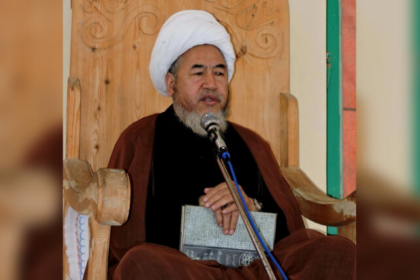RASC News Agency reports: Close associates of Ismail Khan, the former governor and jihadi leader in western Afghanistan, claim that if the conflicts in Badakhshan persist and other regions of Afghanistan escalate, the “Lion of Herat” could reclaim Herat province and other western provinces from the Taliban within a week. A source close to Ismail Khan, one of the jihadi leaders in Afghanistan who requested anonymity, told RASC on Sunday, May 5, that the spontaneous local resistance in Badakhshan against the Taliban marks the beginning of a new movement to oust the group’s rule.
The source added that Ismail Khan remains in constant contact with local influencers, community leaders, and other stakeholders, waiting for the right opportunity to liberate Herat and other western provinces from Taliban control. According to the source, the Taliban are aware of Ismail Khan’s popularity among the people in Herat and western Afghanistan and are cautious of anti-Taliban movements led by him.
The source did not specify when or where Ismail Khan would launch his anti-Taliban operations in Herat and western Afghanistan. These comments from Ismail Khan’s close associates come amid ongoing anti-Taliban tensions in several districts of Badakhshan province. Recently, Ismail Khan stated in multiple meetings that the Taliban’s rule was coming to an end and that the people would ultimately determine the fate of governments.
Other sources report that Tadin Khan Achakzai, brother of General Abdul Raziq Achakzai, is currently in Mashhad, Iran, with Ismail Khan. According to the source, if Ismail Khan engages the Taliban from Herat province, Tadin Khan will initiate military operations against the Taliban from Kandahar province. The source suggests that if the unrest in Badakhshan spreads to other Afghanistan provinces, the Taliban may be forced to flee the country within a month, allowing the Afghan people to take control of their system.
The source also notes that many local leaders and ethnic influencers in Afghanistan are waiting for an opportunity to immobilize the Taliban and establish a new government that would prevent further oppression. On the other hand, some political analysts in Afghanistan assert that the scope of these tensions will remain limited to Badakhshan and will be swiftly diffused. Farshid Amini, a political analyst speaking to RASC, said that the Taliban will use their shrewdness to quell these tensions by any means possible.
He added that if there were widespread cohesion and unity among all Afghanistanis citizens against the Taliban, the group would be forced to flee into the mountains and deserts. Amini further stated that the recent conflicts in Badakhshan have made Tajik and Uzbek Taliban aware of the inequities inherent in the Pashtun-dominated Taliban’s rule, which is unacceptable to non-Pashtun Taliban members.
This marks the first time that local resistance against the Taliban has emerged in Badakhshan province. Notably, residents have continued their protests for three consecutive days. These protests have resulted in casualties, fueling anger among Badakhshan residents towards the Pashtun-dominated Taliban.






